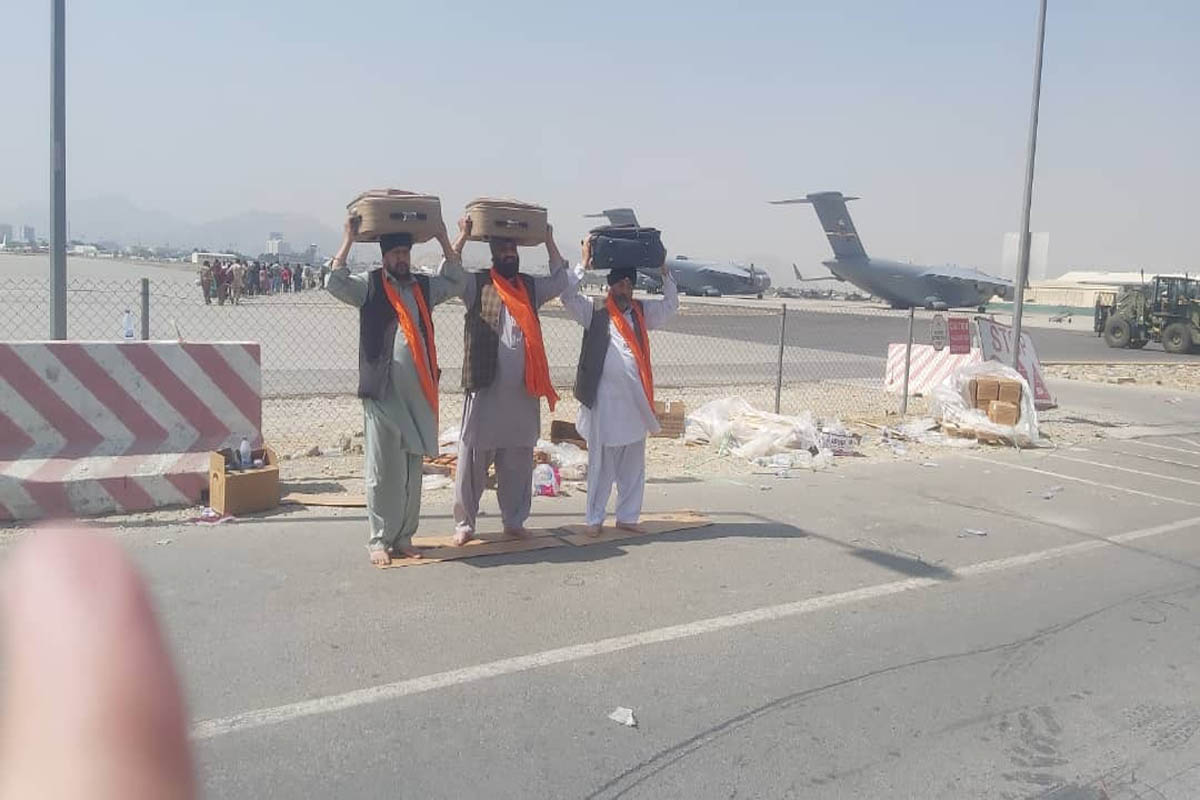Afghanistan: WHO reports surge in acute respiratory disease
According to the WHO report, more than 206,000 people were infected with respiratory diseases during this period, out of which 506 lost their lives.
War, drought, and Covid-19 have devastated farmers across Afghanistan.

Photo: Twitter @PBNS_India
The cash-strapped Taliban regime in Afghanistan is making the country’s distressed farmers to pay the so-called charity or ‘zakat’ taxes on their land and harvests, describing the payments as an obligation under Islamic law, RFE/RL reported.
War, drought, and Covid-19 have devastated farmers across Afghanistan. Now, these farmers who have lost money trying to grow crops over the past year say that the Taliban is dealing them another crippling blow, the report said.
Advertisement
The charity taxes are being collected despite the fact that farmers themselves are among the 14 million Afghans that the World Food Program says are already facing acute hunger.
Advertisement
Farmers say they have to pay a 2.5 percent tax on the value that Taliban tax collectors estimated his property is worth.
The Taliban justifies its charity taxes as one of the five pillars of Islam that are considered obligations for all Muslims.
‘Zakat’ differs from the voluntary act of giving charitable gifts out of kindness or generosity, the report said.
It is meant to be compulsory for those who earn incomes above a certain amount, and it is based on a person’s income as well as the value of their possessions.
Recipients of ‘zakat’ are meant to be the poor and needy, struggling converts to Islam, people who are enslaved or in debt, stranded travellers, and soldiers who fight to protect the Muslim community.
Those who collect ‘zakat’ are also compensated for the work they do.
Critics of the tax include Islamic scholars and aid workers who note that the practice has failed to alleviate poverty in the Muslim world, the report added. They argue that the funds often are wasted and mismanaged.
Residents of Ghor province refute the Ministry’s claim that the Taliban is not delivering tax payment notifications, the report added.
Taliban’s tax collection process began when local militants posted so-called night letters at local mosques and on the walls of residential compounds, the report added.
Farmers in the central Afghan province also say that Taliban gunmen have stormed their homes at night to demand that they pay tithes and charity taxes.
Those without money to make the payments say the Taliban has seized their livestock instead — making their families even more dependent on humanitarian aid in the months ahead, the report added.
In Kabul, the Taliban-led government’s Agriculture Ministry says it is collecting charity taxes from farmers, ranchers, and people with small garden plots in order to bolster revenues and increase the “self-sufficiency” of the country.
Advertisement